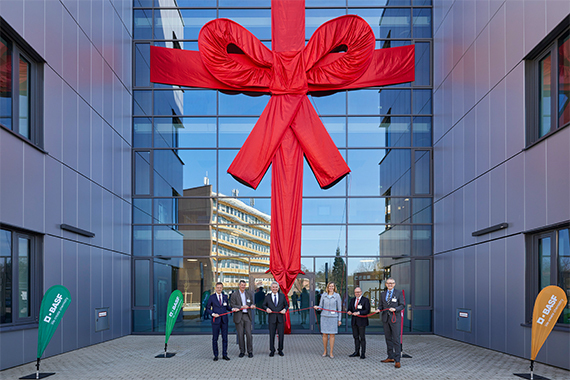More news
- Nigeria’s paint industry navigates regulatory changes and economic challenges amid p...
- Focus on the global coatings market: Global coatings market outlook
- Ask Joe Powder – October 2024
- Chinese paint majors look to domestic consumer sales as commercial real estate slumps
- Architectural coatings in Nepal and Bhutan

BASF has opened a new laboratory building for the development of automotive refinish coatings and innovations beyond paint at its site in Münster, Germany. It underlines the Coatings division’s global position as a future-oriented and innovative company. "It is another component of our positioning as a global innovation centre of BASF Coatings. We are thus complementing a series of global technical innovations. This includes the ‘Lean Lab’, which we started operating in 2018 at this site, as well as our plant for the functionalisation of films for various industries,” highlighted Uta Holzenkamp, Head of BASF’s Coatings division.
With its new building, BASF Coatings contributes towards BASF’s target to reach net zero carbon emission for 2050. "The laboratory building is a huge milestone for the development and formulation of sustainable product solutions. This includes our state-of-the-art waterborne refinish paint portfolio Glasurit® 100 Line and R-M® AGILIS. With the lowest value of volatile organic compounds (VOCs) on the market, they are the eco-friendliest automotive refinish paint lines available,” said Chris Titmarsh, Head of Automotive Refinish Coatings Solutions EMEA.
In addition to manufacturing sustainable products, the site is continuously investing in using energy for production more efficiently, and increases the use of renewable energies. The new laboratories are supplied with thermal energy by using the residual heat from the company’s waste incinerator, which is released via underfloor heating. Since the beginning of the year, the electricity purchased at BASF Coatings’ sites in Münster and Würzburg, Germany, has been generated 100% ecologically from wind power. Compared to the previous year, around 4000 tons of CO2 will be saved in Münster alone.
The laboratory building, whose façade is designed in six different grey-blue nuances that change depending on the perspective and the daylight, creates future-oriented workplaces. The innovative arrangement of the laboratories, warehouses, offices and meeting rooms enables a completely new, agile form of collaboration that is intended to promote not only efficiency and effectiveness, but also overarching collaboration and creativity.



